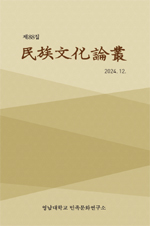- 영문명
- Community Practices and Relationship-Making in a Korean-Chinese Rural Village: Focusing on the Reconfiguration of Social Relations in Village A after the Land Transfer Policy
- 발행기관
- 영남대학교 민족문화연구소
- 저자명
- 류영희(Yeonghui Ryu)
- 간행물 정보
- 『민족문화논총』제90집, 437~475쪽, 전체 39쪽
- 주제분류
- 인문학 > 역사학
- 파일형태
- 발행일자
- 2025.08.30
7,480원
구매일시로부터 72시간 이내에 다운로드 가능합니다.
이 학술논문 정보는 (주)교보문고와 각 발행기관 사이에 저작물 이용 계약이 체결된 것으로, 교보문고를 통해 제공되고 있습니다.

국문 초록
본 연구는 연구자가 중국 길림성 A 조선족 농촌 마을에서 7개월간의 현지조사를 통해 수집한 자료를 바탕으로 토지유전정책의 실시가 조선족 농촌 마을의 지방 권력 통제하에서 마을 내 노동 교환, 토지 임대, 권력의 재편과 계층 분화에 어떤 영향을 끼쳤는지를 인류학적으로 분석한 것이다. 연구자는2013년에 7개월간 A 조선족 마을에 거주하며 마을 주민들의 노동 관행과 호혜 관계, 그리고 촌간부의 권력 행사 방식, 경작농과 비경작농 사이의 상호작용과 갈등을 면밀히 관찰하였다.
그 결과 촌서기를 중심으로 한 촌민위원회 간부들은 토지 관리와 보조금, 노동력 동원을 사실상 독점하면서 마을 내 권력을 강화하고 있었고, 마을의자원과 정보를 통제하며 경제 이익집단으로 발전하고 있었다. 한편으로 마을내 노동 교환과 호혜의 실천은 과거의 평등성과 상호성을 상실하였으며, 권력과 위계를 내포한 비대칭적 관계로 전환되고 있었다. 이로 하여 경작지를 확보한 일부 ‘대호(大戶)’는 노동 교환의 중심에서 혜택을 받는 위치에 있으며, 고령, 질병과 한국 취업으로 농사를 그만둔 비경작농들은 토지 경영권을 보유하고 있음에도 불구하고 노동 교환과 호혜 관계에서 배제되는 이중적 위치에놓였다.
본 연구는 중국의 토지유전정책이라는 국가 제도가 A 조선족 농촌 마을에서 어떻게 왜곡되고, 일상 권력 구조와 결합하여 계층 분화를 심화시키는지를보여준다. 아울러 ‘호혜’라는 공동체 규범이 실제로는 권력 재생산의 수단으로활용되는 과정을 드러내며, 농촌사회에서의 침묵과 감정 관리가 불평등한 질서를 유지하는 핵심 장치로 작동함을 밝힌다.
영문 초록
This study anthropologically analyzes how the implementation of China's land rights policy has influenced labor exchange practices, land leasing, power restructuring, and class stratification within an ethnic Korean (Joseonjok) rural village in Jilin Province. Drawing on seven months of fieldwork conducted in 2013, the researcher closely observed the labor practices, norms of reciprocity, modes of power exercised by village officials, and the interactions and tensions between cultivating and non-cultivating households.
The findings reveal that village committee cadres, led by the village secretary, have effectively monopolized land management, state subsidies, and the mobilization of labor, thereby consolidating their power and evolving into a dominant economic interest group. Meanwhile, traditional forms of reciprocal labor exchange have lost their former egalitarian and mutual character, transforming into asymmetrical relationships imbued with power and hierarchy. Large-scale landholders (大戶) benefit most from labor exchange, while non-cultivating households-those who have ceased farming due to age, illness, or employment in South Korea-are increasingly excluded from reciprocal labor networks, despite still holding land-use rights.
This study demonstrates how a national policy-China's land transfer system-has been locally distorted and entangled with everyday power structures to deepen class divisions. Furthermore, it reveals how the communal ideal of “reciprocity” functions as a mechanism for reproducing power, and how silence and emotional management in rural life serve as key instruments for maintaining unequal social orders.
목차
Ⅰ. 머리말
Ⅱ. 마을의 역사와 토지유전정책의 전개 과정
Ⅲ. 호혜의 균열과 계층의 분화
Ⅴ. 맺음말
참고문헌
키워드
해당간행물 수록 논문
- 세계유산 ‘한국의 서원’ 祭享儀禮 활용 사례와 향후 과제
- ‘계승에서 활용으로’: 중국 서원의 演變과 대학 서원의 운영
- 국가유산 활용 사업을 통한 서원의 현대적 교육 활용 사례 분석
- 서원문화자산의 활용과 과제 - 2025년 「향교·서원 국가유산 활용사업 90선」을 중심으로
- 서원의 진정성 있는 활용
- 경산 지역 서원 현황과 활용 방안 제언
- 글로컬 인문공간 한국의 서원 활용도 제고를 위한 제언
- 한국 서원 연구의 활성화 및 활용을 위한 제언
- 동아시아 서원사 연구의 새로운 지평 - “Academies in East Asia”에 대한 서평
- 지역과 연계한 서원 체험학습 교재 개발 - 대구지역 초등학생 현장 체험학습을 중심으로
- 传统书院的现代命运-陇南书院的现代发展路径与教育功能再造
- ĐƯA DI SẢN ĐẾN GẦN VỚI CÔNG CHÚNG-SỰ CHUYỂN ĐỔI PHƯƠNG THỨC BẢO TỒN DI SẢN TẠI VĂN MIẾU-QUỐC TỬ GIÁM VIỆT NAM
- 전후 영국 사회의 요구와 신흥 대학교(New University)의 대응 - 워릭대학교(University of Warwick) 사례를 중심으로
- 중국 조선족 농촌 마을에서 공동체 관행과 관계맺기 - 토지유전정책 이후 A 조선족 농촌마을의 관계 재편성을 중심으로
- 신라의 稅役 관련 용어 용례 검토
- 종교적 실천을 통한 정체성의 재구성: 귀환 이주 고려인의 사례를 중심으로
- 현실주의 관점에서 바라본 냉전기 해외원조: 마셜플랜과 대한 원조
- 채원 오횡묵(吳宖黙)의 지역정치와 선정비(善政碑) 연구 - 경상도 고을을 중심으로
- 고고자료 검토를 통한 고구려 평양 시기의 왕릉 비정
참고문헌
관련논문
최근 이용한 논문
교보eBook 첫 방문을 환영 합니다!

신규가입 혜택 지급이 완료 되었습니다.
바로 사용 가능한 교보e캐시 1,000원 (유효기간 7일)
지금 바로 교보eBook의 다양한 콘텐츠를 이용해 보세요!



